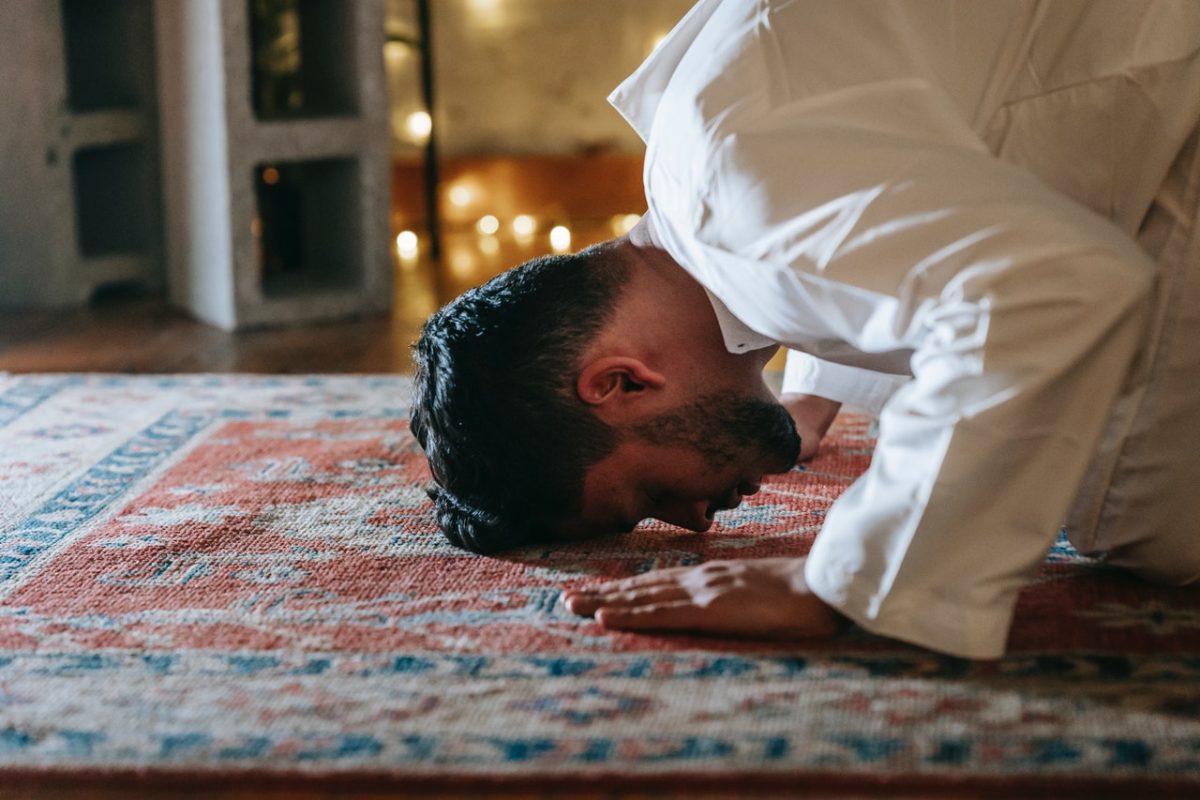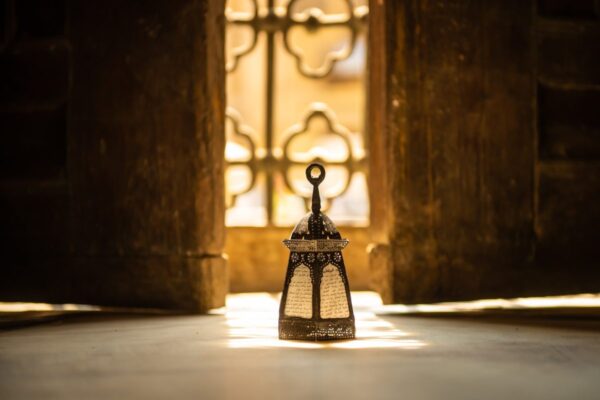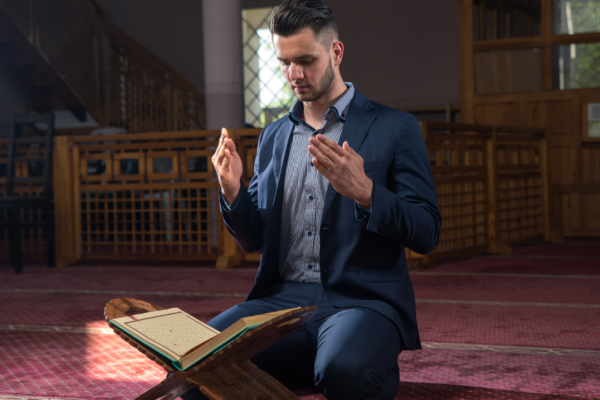Contents
Background
Yusuf [peace be upon him] is the son of Yakub [peace be upon him], the son of Isaac [peace be upon him], the son of Abraham [peace be upon him]. These were all prophets. The Prophet (sal Allahu alayhi wa sallam) therefore said: “The noble son of the noble, the son of a noble, the son of a noble. That was Yusuf, the son of Yakub, the son of Isaac, the son of Abraham.” (Bukhari)
Complete reading in Surah Yusuf
The story of Yusuf can be read in chapter 12 of the Quran, called Surah Yusuf. This is the only chapter in the Qur’an that describes and treats one story completely, unlike the stories of the other prophets which are scattered throughout the Qur’an. The story of Yusuf is classified in verse three of Surah Yusuf as “the most beautiful stories”.
His dream
The story of Yusuf [peace be upon him] begins when he sees a dream in which eleven stars, along with the sun and the moon, prostrate before him. He told this dream to his father, who advised him not to tell his (half) brothers about his dream, because they might get jealous. Yusuf [peace be upon him] followed his father’s advice, but Layla, the mother of his half-brothers, also heard the story and passed it on to her children. When they heard this story, they thought that Yusuf [peace be upon him] wanted to use them as slaves and that is why they wanted to get rid of him. They initially wanted to kill him, but one of the brothers named Yehudha suggested that they should throw him into a well. He wanted to help Yusuf [peace be upon him] but could not tell them not to kill him, so he suggested that they should throw him into a well. From this we learn that we must always choose the lesser evil when good is not possible.
Evil plan of his brothers
The brothers of Yusuf [peace be upon him] went to their father, Yakub [peace be upon him], and asked him if Yusuf could come with them to the desert so that he could run and play. Yakub [peace be upon him] was afraid that something might happen to Yusuf [peace be upon him], but gave permission anyway, when they started to insist. Yakub [peace be upon him] had seen a dream in which ten wolves approached Yusuf [peace be upon him], one of whom tried to protect Yusuf [peace be upon him]. Then he saw the ground split open and Yusuf [peace be upon him] came in and stayed there for three days. Because of this dream, Yakub [peace be upon him] instructed his sons to take good care of Yusuf [peace be upon him]. They indicated that they were many and that little could happen (Surah Yusuf, verse 14). Once they were in the desert, they took off his shirt and threw him into a well called Ahzan. In this well, Yusuf [peace be upon him] received a revelation from Allah, so that he was not afraid while he was in the well. His half-brother Yehudha came every day to feed him, but one day he found a well without his brother Yusuf [peace be upon him]. He became sad and told his brothers, and they went to find Yusuf [peace be upon him].
“Yusuf was killed by a wolf.”
They found out that a person named Malik had found him in the well and taken him as a slave. When they said they want him back, Malik offered them a little bit of money and bought their brother from them. The brothers of Yusuf [peace be upon him] of course could not tell this to their father Yakub, so they had to lie. They had stained his shirt with the blood of an animal and told their father that they had lost sight of Yusuf [peace be upon him] and that a wolf had eaten him.1 Yakub [peace be upon him] did not believe this, because the shirt had no holes, and so knew that his other sons had caused this. He cried a lot for the loss of his son, which eventually made him blind.
Yusuf was bought by Potiphar
When the caravan with Yusuf [peace be upon him] arrived in Egypt, he was sold for twenty Dirhams to Potiphar/Qitfir, the right hand of Pharaoh. He then ordered his wife, Zulaykha, who was also Pharaoh’s niece, to take good care of him.2 For he believed that Yusuf [peace be upon him] could be of use and wanted him otherwise as a son. He grew up in the palace and was given wisdom, the ability to judge between good and evil, and knowledge of Allah.3 With this, as a prophet, he also received the miracle that he could interpret dreams. In the palace, he had to perform simple tasks at the beginning. However, he did everything very well, thanks to which he excelled and became a kind of coordinator in the palace.
His Characteristics
According to traditions, Yusuf [peace be upon him] was a very handsome man. It is said that if beauty consisted of seven parts, Yusuf [peace be upon him] would have six of them and the remaining part would be used for all mankind. He was very beautiful both outwardly and inwardly. Zulaykha could not resist his beauty and wanted to seduce him one day. She dismissed everyone and locked the door of the room and invited Yusuf [peace be upon him]. Yusuf [peace be upon him] refused and said, ‘I seek refuge in Allah. He is my Lord.4 He has made my stay worthy.” As he headed for the door, Zulaykha tugged at his shirt, tearing it. At the door they found Potiphar and Zulaykha blamed Yusuf [peace be upon him] directly. Yusuf [peace be upon him] said he had done nothing. There was a relative who said, “If his shirt is torn in the front, then she is telling the truth and he is one of the liars. If his shirt is torn at the back, then she is telling a lie and he is one of the trustworthy ones.”5 According to a tradition, this relative was a niece of Zulaykha, who had given birth to a child. Yusuf [peace be upon him] asked this newborn child to testify for him, after which the child testified. That’s how they found out that Zulaykha was lying. Potiphar asked Yusuf [peace be upon him] to forget this incident and told his wife to ask forgiveness.
The incident had to be covered up, because Potiphar and Pharaoh both had reputations that they did not want to damage. However, the story was heard by some of the palace workers and they passed it on to the people. The women of the city said, “The wife of al-‘Aziz [Potiphar] has tried to seduce her servant. The love [for Yusuf] has touched her heart deeply. We see her in clear error.”6
When Zulaykha heard this gossip, she came up with a plan, by which she wanted to prove her innocence. She organized a buffet for the women and made sure each of them had a knife. The women were curious and all came to the buffet. Zulaykha ordered Yusuf [peace be upon him] to put on nice clothes and then enter the hall. When the women saw the beauty of Yusuf [peace be upon him], they were amazed at his beauty and cut their hands because of it. They said, “Exalted is Allah! This is not a human being, this cannot but be a noble angel.” 7
Zulaykha said, “This is the one about whom you have reproached me. Indeed, I tried to seduce him, but he protected his chastity. And if he does not do as I command him, he will be imprisoned, and he will be of the humbled.”8 She was actually trying to indicate that other women would have done the same if they were in her situation.
1 Surah Yusuf, verse 18
2 Surah Yusuf, verse 21
3 Surah Yusuf, verse 22
4 Surah Yusuf, verse 23. According to the scholars of exegesis, this can refer to Allah or the master of the house, Potiphar.
5 Surah Yusuf, verse 26
6 Surah Yusuf, verse 30
7 Surah Yusuf, verse 31
8 Surah Yusuf, verse 32






